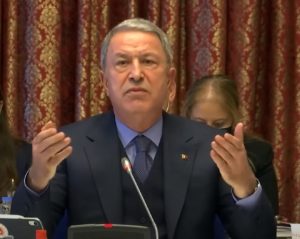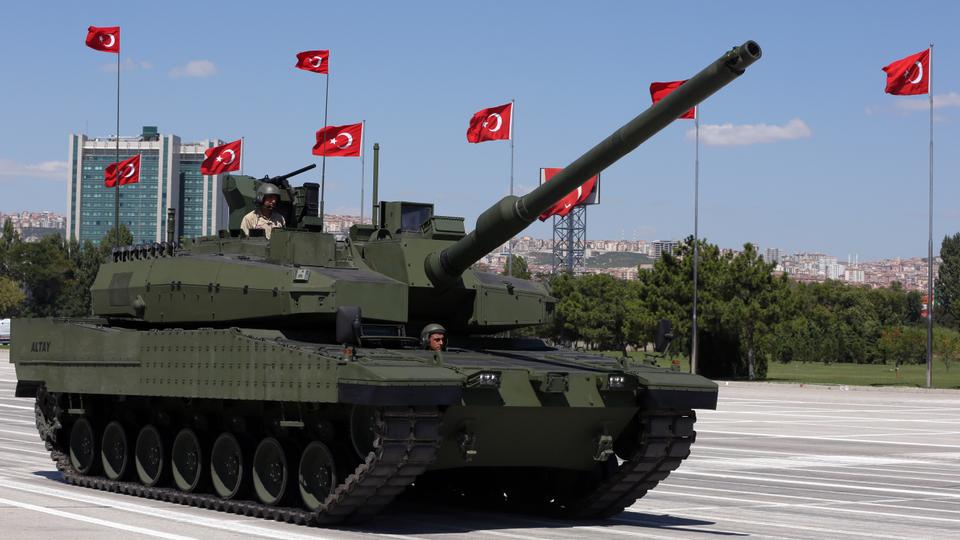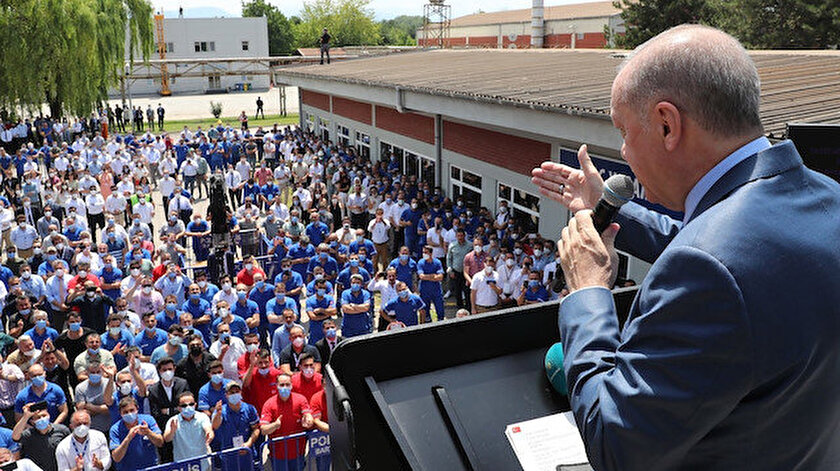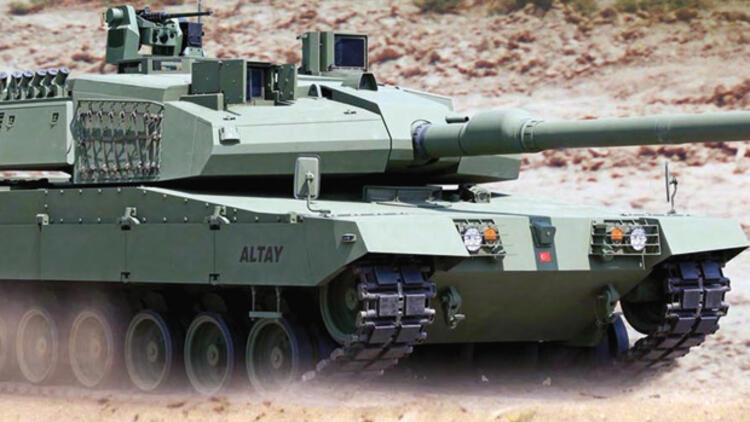Levent Kenez/Stockholm
Turkish Defense Minister Hulusi Akar briefed lawmakers last week on the Altay national tank project during budget negotiations in parliament. Regarding the 15-year project that has turned into an enigma, the minister told legislators that engine and transmission problems had not been resolved. In 2017 President Recep Tayyip Erdoğan declined the offer of a private company that had already produced a prototype and was ready for mass production; yet he contracted another company owned by a businessman in his close circle, sparking a great deal of controversy.
The uncertainty about the participation of German company Rheinmetall, the manufacturer of Leopard tanks, in the Altay project, officially ended with Akar’s briefing in parliament. It was no secret that there were serious delays in the project due to the German government’s undeclared embargo that started in reaction to Turkey’s unilateral military interventions in Syria in recent years. While the Turkish government engaged in intense diplomacy to persuade the Germans, negotiations were started with Korean companies as an alternative. Akar clarified that Rheinmetall will not take part in the project.
Akar talks about the Altay project in his parliamentary speech:
“Unfortunately, no results were obtained from the export license applications made for the supply of the Altay tank engines and transmission system,” he said. “Under the coordination of the Presidency of the Defense Industry, efforts for the production of a domestic engine are continuing as are negotiations with other countries.”

Akar previously argued that the best solution for the project was to use German technology, following a meeting with German Defense Minister Annegret Kramp Karrenbauer in February in Berlin. “The Altay was developed based on a German engine. Finding an alternative engine from another country and integrating it into the tank is not a simple matter. The design of the tank needs to be changed. Therefore, the most appropriate solution would be procurement of the German power system.”
Meanwhile, Akar announced in parliament that BMC had produced an Altay prototype. This information, which was circulated as a great news story by the pro-government media, actually means nothing to those following the project since the prototype Akar mentioned was produced by using the German engine and transmission system that was procured for research and development purposes. It will have to be redesigned with a new engine component if supplied by another country. In addition, the Otokar company, which submitted the first proposal for the Altay project that was rejected by Erdoğan, had produced four prototypes in 2016 and delivered them to the Turkish Armed Forces for testing and compliance.

According to the Altay deal in 2018, the first tank was expected to roll off the assembly line within 18 months and be delivered to the Turkish Land Forces by BMC. The contract included mass production and life-cycle logistical support for 250 units. After the signing of the Altay project with BMC in 2018, the government was accused by opposition groups of favoring a Turkish-Qatari joint venture owned by Turkish businessman Ethem Sancak, who sits on the ruling Justice and Development Party’s (AKP) executive board, and the Öztürk family, distant relatives of President Erdoğan, as well as Qatar. A full 49.9 percent of BMC’s shares belong to Qatar, while Sancak owns 25 percent and the Öztürk family (Ahmet Öztürk, Talip Öztürk and Taha Yasin Öztürk) holds 25.1 percent.
The Altay project is Turkey’s first main battle tank development program, which includes electronic command and control systems, a 120-millimeter gun and armor, all of which will be made by Turkish defense contractors. The Altay project has been beset by critical technology problems that have impacted its production timeline.

President Erdoğan has announced several times that mass production of the Altay tank would begin shortly, pointing to various dates. Visiting the BMC factory on July 2, 2021, Erdoğan said he talked to the software engineers and received a promise from them that production could start in 2023. However, the engine and transmission are the problems with the tank, not the software.
Turkey announced that it had started to manufacture a 1,500 horsepower tank engine, with videos of the engine presented to the press. However, experts emphasize that accomplishing the transfer of engine power to the tank will take a long time.
BMC has been in talks with Korean engine-maker Hyundai Doosan Infracore and S&T Dynamics, which produces automatic transmissions. Representatives of these companies are expected to visit Turkey next February.












